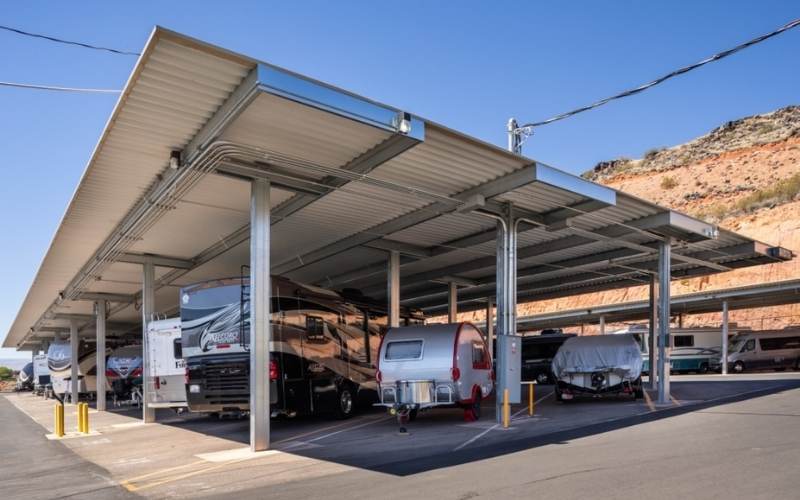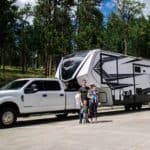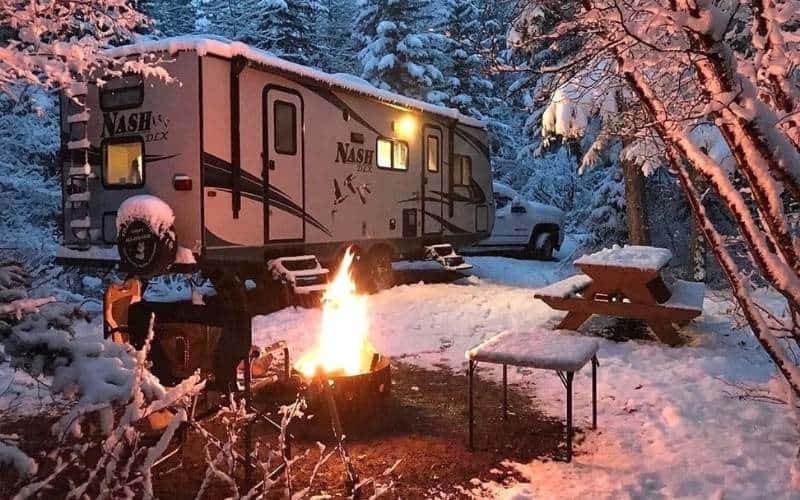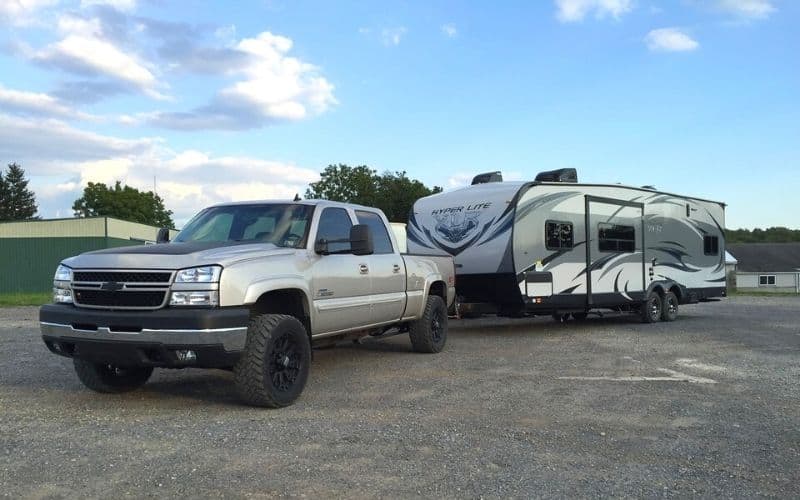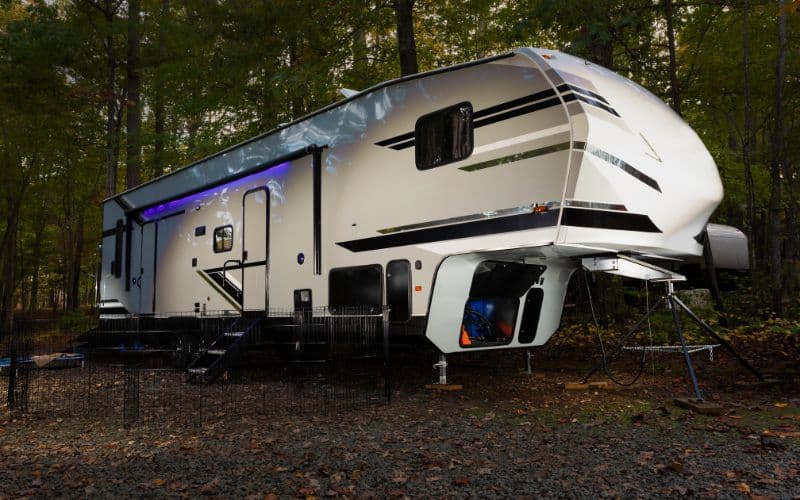If you are looking for ways to spend less time patching roofs and more time behind the wheel, RV-covered storage is an easy way to prevent long-term damage and is well worth spending a few bucks or a few weekends.
While a covered outdoor storage is a far better option than an uncovered one but storing your RV in these storage facilities is more expensive than uncovered parking space.
So, the question we often get is “Is covered RV storage worth it?”
Covered RV Storage is efficient and effective enough at blocking the elements to be worth the effort. A covered RV will last longer than an uncovered vehicle in the same conditions every single time.
It might seem simple enough to throw a tarp over your roof and call it a day, but taking things an extra step with an outdoor covered storage spot can better prevent leaky roofs and rusty underbellies.
We’ll expose you to the intimate details, pro tips and completely cover the topic, so you can decide if they’re worth it or not.
What is covered RV storage?
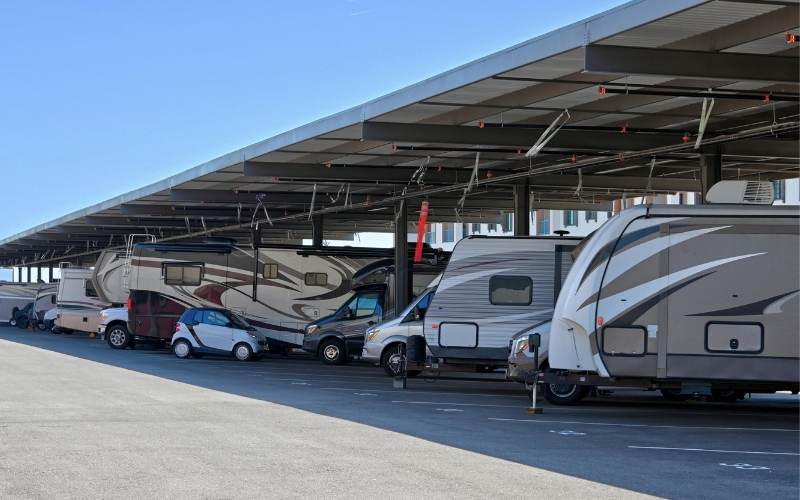
Covered RV storage is any outdoor storage spot protected by an awning or overhead structure designed to house your RV while you’re not driving it.
A carport for your mobile home, these structures are better options than leaving your RV exposed but don’t offer the same protections as fully inside coverage.
RV owners often use covered storage when they won’t be using the vehicle for a long time.
Natural elements will slowly wear away at your RV’s outer protection, and the overhead shade blocks off excess rain or sun.
You can find covered storage at many local storage facilities for rent, or you can install your own contraption in your backyard.
They can protect from foul weather and help keep your RV in top shape while it waits for your next trip.
How Much Does It Cost To Store An RV In A Covered Storage Facility?
Depending on your location, amenities, and RV class, you can expect to pay somewhere between 20-90$ a month for outdoor covered RV storage in a facility.
Indoor RV storage will cost somewhere between $60-$110, and if you need climate-controlled RV storage, you can expect to pay $350 a month.
A simple RV cover will only cost you $200, but improper storage could lead to larger repair bills in the long run.
Eventually, the cheapest option will be to store your RV at home, as long as you’ve got the yard space.
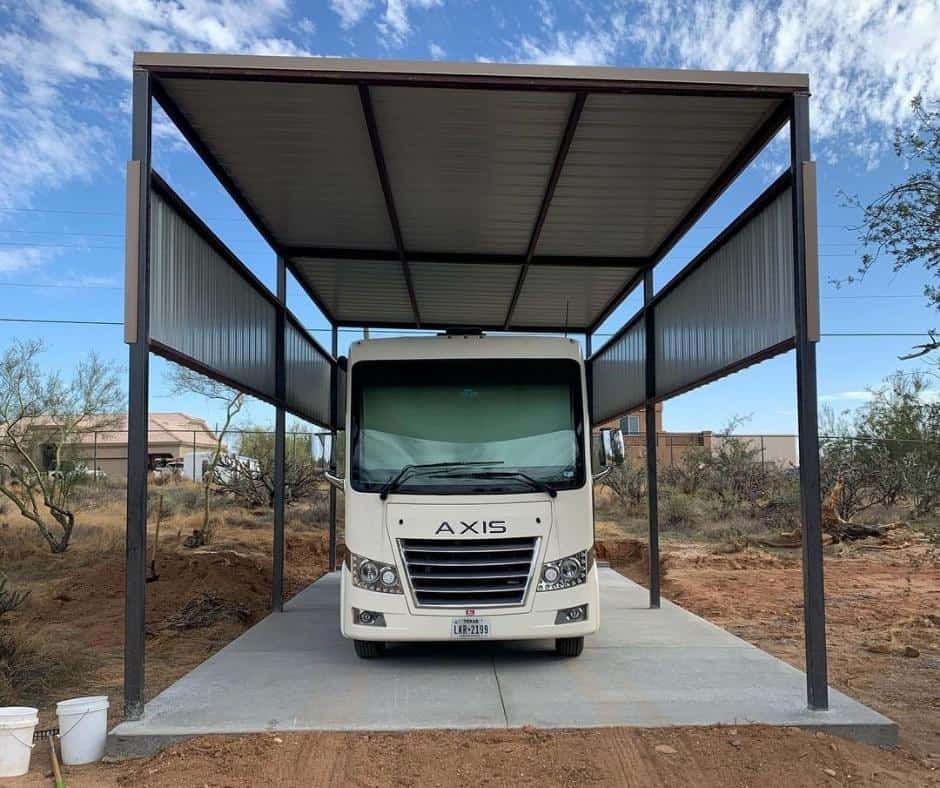
Clear out any open area with plenty of room for your vehicle and take measurements of your RV’s length, width, and height.
Depending on your vehicle size, A metal storage carport built to fit recreational vehicles will cost 1,000$ and a few hours of elbow grease to set up your space.
If you want your RV to have more substantial coverage than a metal carport, you’ll have to spend a few thousand dollars on the right supplies and construction costs to protect your camper fully.
This option will allow you to customize your storage space with charging ports and cleaning supplies as you wish, giving the covered storage further convenience.
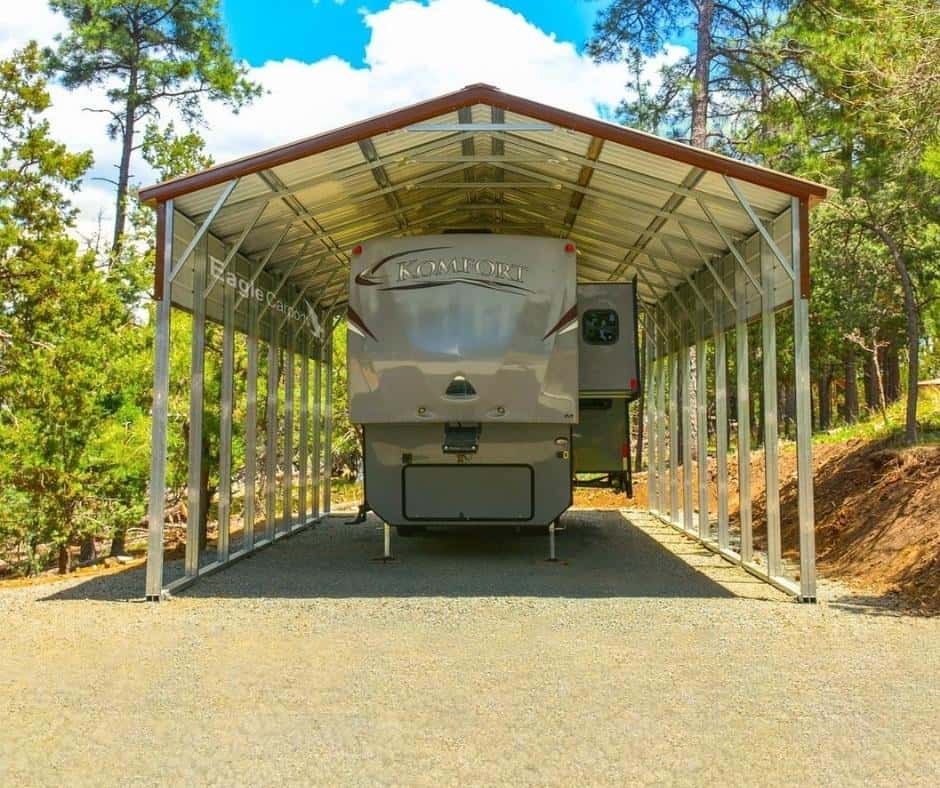
Advantages Of RV covered storage
There are several key benefits to keeping your RV protected. Covered RV storage can help prevent you from knowing the repair guys on a first-name basis.
Here are some benefits or covered RV storage that make it worth the price:
1: Protection Against Sun Damage
The summer sun will slowly break down anything that is constantly exposed to UV rays.
Anyone who has forgotten to bring windshield cover to the beach has felt what one day of sunshine could do to the interior of your vehicle.
Months of exposure to direct sunlight will start to damage your upholstery and speed up the degradation of your living space.
Double down against sun damage by combining your covered RV storage with additional window shades to keep things cool no matter how long you’ll be away.
Everything from the dashboard and seats to the flooring and ceiling will crack open and lose color.
Sun damage can be just as harmful to your vehicle’s health as inclement weather.
2: Protection against the elements
If you store your RV long enough, there’s going to be some rain. Create a barrier between your investment and the elements by parking your RV underneath covered storage.
Rain, sleet, snow, and ice eat away at the exterior components and will eventually worm their way inside.
Your RV should be something that still takes you into the woods decades from now and to ensure it can take you further.
It’s never too early to provide complete protection against bad weather days.
A simple covered storage option will drastically reduce the threat of water damage. Make sure your storage solution completely covers your RV with room to spare.
3: Provide An Added Level Of Security
Taking an effort to keep your RV secure will pay dividends eventually. If you treat your RV well while in storage, it is more likely to be ready to roll when you are.
You can sleep soundly through rainy nights without having to worry if the roof is holding up.
The ceiling is the roof when it comes to where your RV can take you. The more you put into it, the further you’ll go.
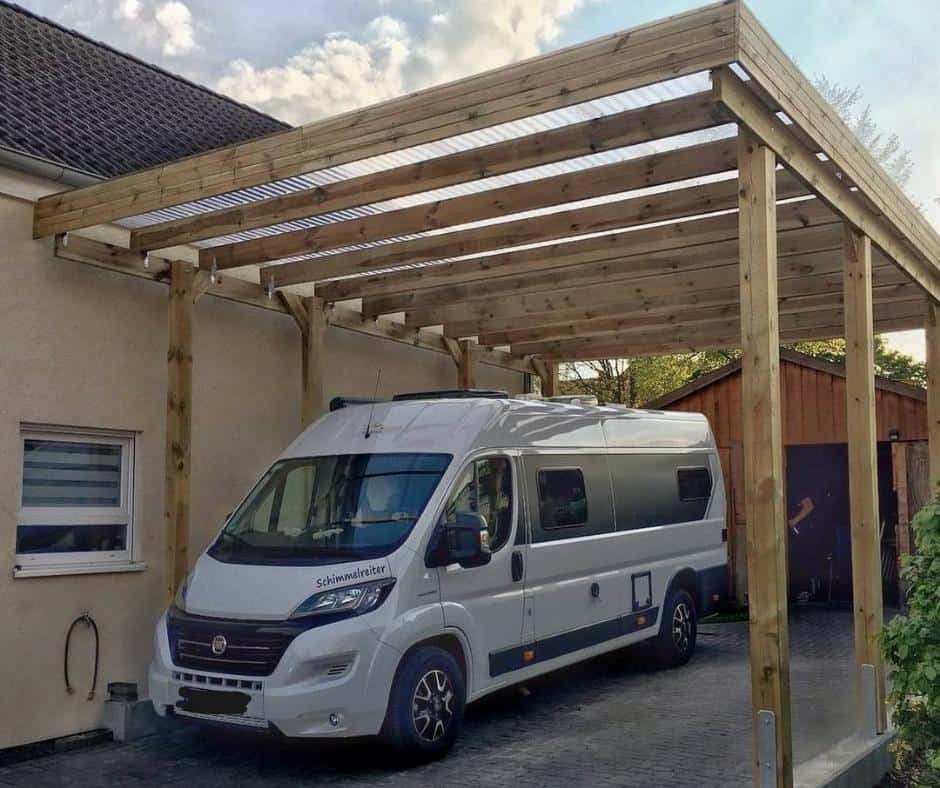
Reasons To Avoid Covered RV Storage
There’s a reason there are other choices when it comes to RV storage. The protections brought on by outdoor covers are not perfect.
Understand what these covers can’t protect from before you commit to the process.
1: Not Easy To Set Up
RV storage is not the most glamorous aspect of ownership. Finding a storage facility near your house that offers covered storage or building your own are no simple tasks.
Not every complex can handle larger vehicles. The bigger your RV, the pickier you’ll have to be.
Incorrect installation of your awning will cause the exact damage it was seeking to prevent.
Make sure you allow plenty of time to make mistakes and completely understand what your getting yourself into before you begin construction.
While this outdoor coverage is still way more accessible to manifest than indoor storage, it’s not something you can expect to pull off in one afternoon.
2: Still Slightly Exposed To the Elements
Covered RV storage is still outdoors, and most awnings won’t spread all the way down to the wheels of your vehicle.
Driving rain can still assault your camper through the sides of the cover.
Heat and humidity will still work their way into your vehicle as long as it is not in a completely climate-controlled area.
There are not many complete protection choices for large vehicles. Most of us will find outdoor covered storage adequate, but If your RV needs the utmost protection, you may find covered storage doesn’t go far enough.
3: No Animal Protection
If your RV sits long enough, some local critters are bound to set up shop somewhere in your vehicle’s inner workings.
Squirrels, mice, and other pests love the shady protection a large engine offers, and the wiring tunnels around your vehicle’s exterior can come alive if your covered shelter doesn’t go far enough.
RV owners using facilities should be sure to understand the company’s pest policies so they aren’t left footing an expensive repair bill.
Anyone storing their vehicle at home should do everything in their power to make your RV an uninviting piece of real estate.
Ensure every bit of food and beverage waste is out of your RV, and inspect it frequently while in storage for signs of intrusion. An outdoor cover doesn’t protect animals on its own.
Animal inhabitants can chew through wirings, create holes in your RV’s mainframe, and spread disease.
Is Covered RV Storage Worth The Price?
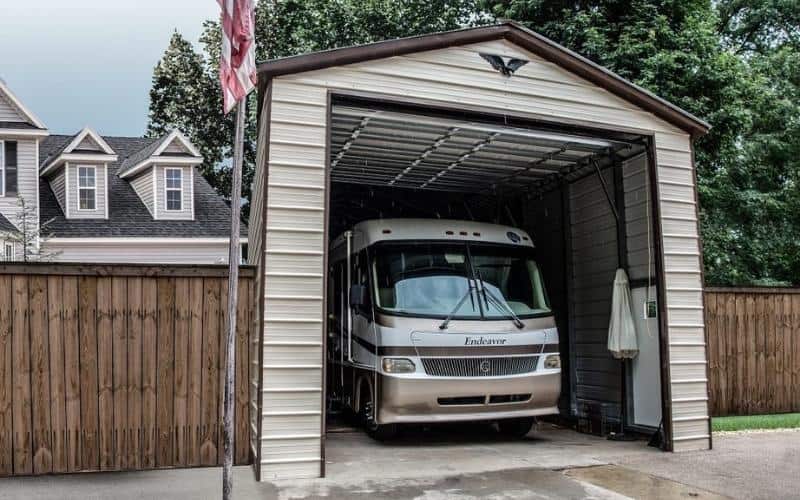
There are severe benefits and drawbacks to a covered RV storage system. Just like every aspect of RV ownership, there is no one universal truth that holds for everyone. Only you know what’s best for your camper and your wallet.
For many campers, the affordability and effectiveness of covered RV storage make it worthwhile to invest in this storage solution.
Parking your RV a dedicated cover at the end of every trip is a great way to make sure there are plenty more vacations ahead.

